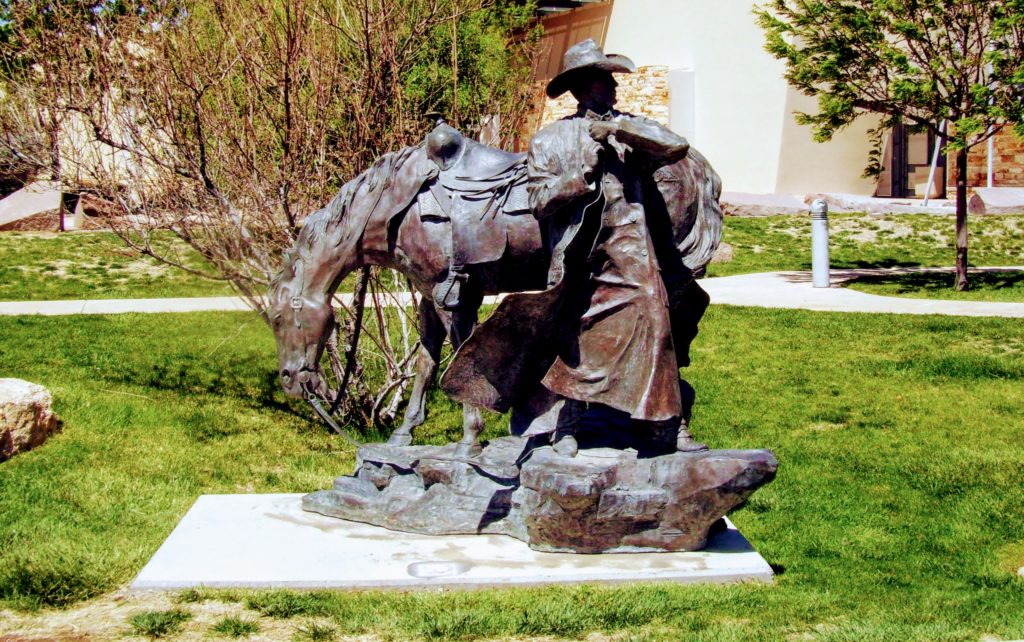
God’s priority list
Zechariah 7: The message hasn’t changed.
The question asked concerning the day of fasting in memory of the destruction of Jerusalem opens the way for the Lord to restate what he requires of his people. Through Zechariah the Lord reminds them that his requirements are unchanged. He isn’t very interested in their traditions but he’s very interested in how they treat one another. He’s always called for them to love their neighbors and be compassionate in their dealings with one another. Also, the Lord still has a special concern for widows, orphans, outsiders, and the poor. If these Jews want to please the Lord, they’ll focus on these things more and on their traditions less. Zechariah goes on to describe how, when their ancestors ignored these things that the Lord became angry with them and scattered them throughout the world. Is it possible that we spend too much time worrying about doing church properly and too little time pursuing the things the Lord lists here? When all is said and done, is the Lord more interested in how capably I can do church than he is in how I treat the poor? This passage ought to serve as a compass for all who consider themselves to be a people of God. Here we find a description of how God’s people ought to live.
Take Away: When all is said and done, the Lord is more interested in how we treat others than in how we do church.
Category: Pastor Scott
Devotional on Zechariah

Promise box theology
Zechariah 8: Is anything too much for me?
This section of Zechariah’s writing is made up of short “Proverbs-like” statements from the Lord. Years ago we had a little plastic box that had cards with individual verses printed on them. Each day we would pick a card and read the promise for that day. In spite of this fortune cookie approach to Scripture there was the positive aspect of our becoming familiar with all the good things the Lord has to say to his people. To those of Zechariah’s day, his short words of encouragement might have contained some of that “promise box” value. After years of putting it off, they’ve accepted the challenge of rebuilding the Temple. It’s a huge job and they’re overwhelmed by it all. In the midst of all this God’s prophet comes around every so often with a new word of the Lord to them. He tells them that the Lord cares about what they’re doing and that Jerusalem has a bright future. On this day, Zechariah encourages them to remember that the Lord’s helping them and nothing’s too hard for God. As I reach out to make this word of encouragement my own I’m reminded of the downside of using that old promise box. These words are spoken in a specific context. They aren’t about my getting a passing grade on some important test I’m about to take or my getting a raise at work. If I try to make these words about my wants then I’m guilty of twisting the intent of the Almighty. This promise is that God will help me to do what he calls me to do, even if that mission seems like an impossible task. This is a terrific promise just as it is and I need to respect it and not turn it into a tool for getting God to do stuff for me.
Take Away: The Lord will help us to do what he calls us to do.
Devotional on Zechariah
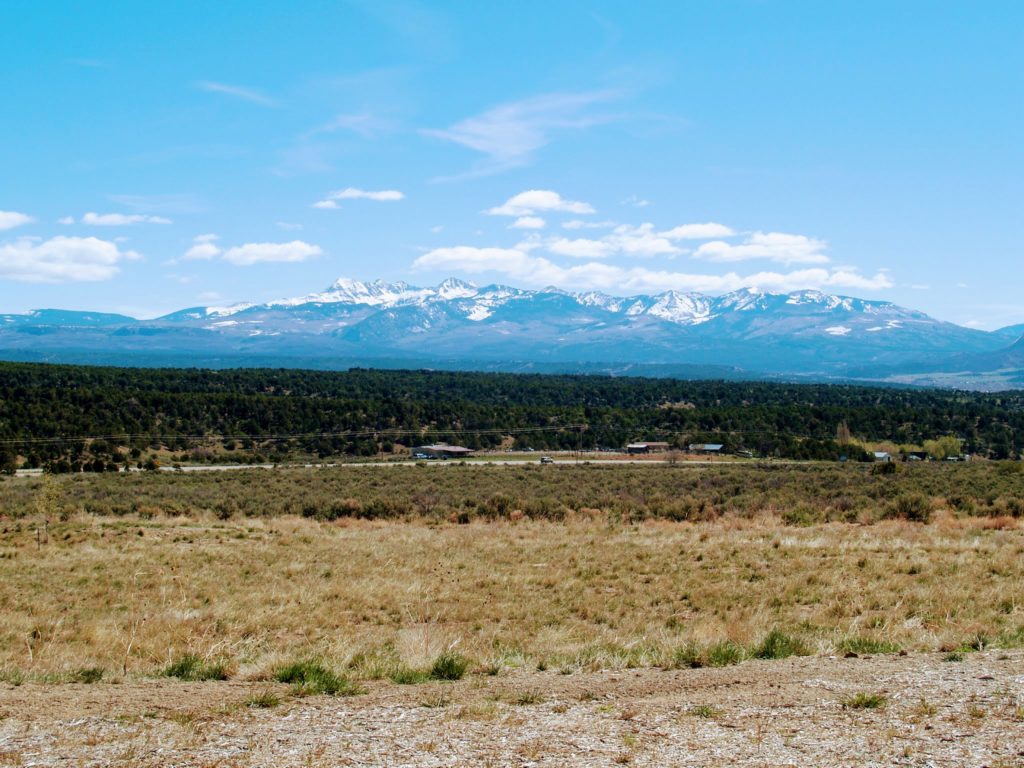
Truth and simplicity
Zechariah 8: Keep your lives simple and honest.
They’ve been through a terribly hard time but now things are getting better. The 70 year exile is over and the new generation of exiles is returning to Jerusalem. When they arrive they’re overwhelmed by the devastation but the Lord sends leaders and laborers and things are coming together. Stones aren’t the only things being put back into place: the Lord is rebuilding a people to be his very own. Through his prophet, Zechariah, the Lord tells them that he wants them to be truthful people who do the right thing in every situation. His desire is for them to live simple and honest lives. If that’s what God wanted in the lives of these ancient Israelites, it’s most certainly what he wants in the lives of Christians today. I wonder if my life can be described as a “simple life?” What is it that dominates my time? In describing his life, the Apostle Paul begins, “This one thing I do….” Is that something I can honestly say? Even as the people of Israel rebuild their city and Temple, the Lord’s rebuilding a people who’ll live truthfully and simply. How can I better respond to this desire of God for his people?
Take Away: The Lord wants us to be people who live truthfully and simply.
Devotional on Zechariah
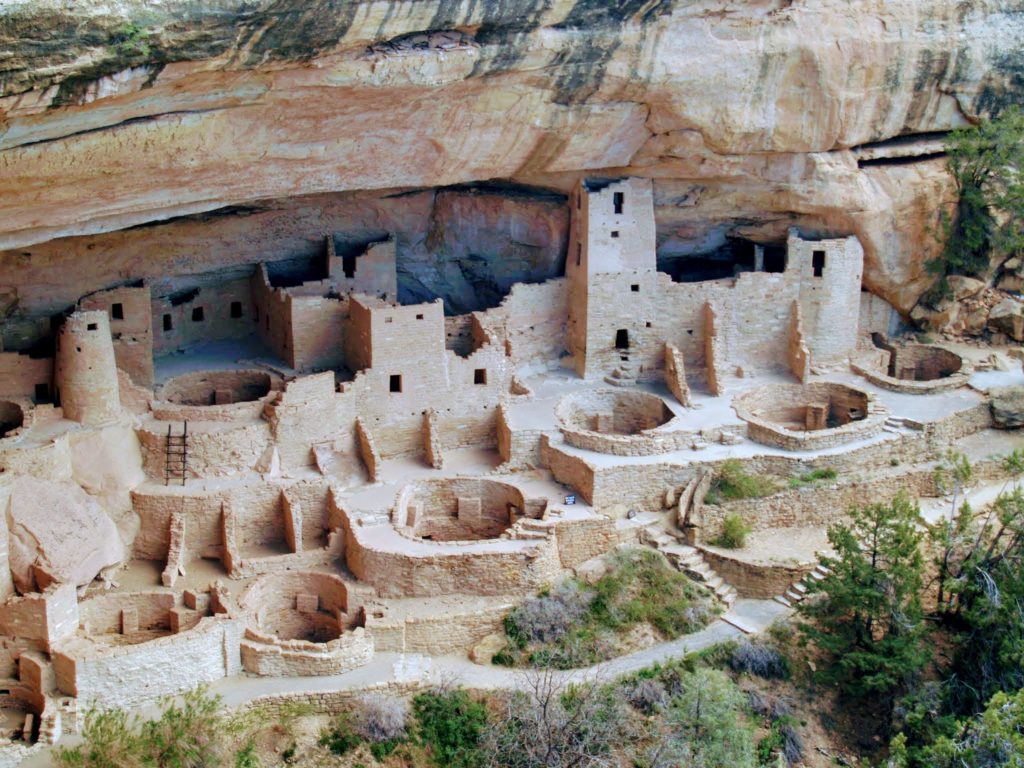
Palm Sunday foretold
Zechariah 9: Your king is coming!
Israel is without a king and under the rule of the Persian King Darius. As the returned exiles accept the call of God to rebuild the Temple, the Lord encourages them through the messages and visions of the prophet Zechariah. God’s pleased with them and their commitment to the huge Temple project and promises to be with them. He’ll do for them what they cannot do themselves. Good days are ahead. Not only will the Lord help them in the reconstruction project, he’s going to make them into a great nation that will influence all the nations of the earth. The day will come when they’ll be freed from the rule of Darius and will, instead, be ruled by a King sent from God. That king will come into Jerusalem, not riding a mount of war, but upon a mount that symbolizes humility and peace, a donkey. It will be 500 years before that event takes place and then at least 2000 years more before the promise Zechariah gives is totally fulfilled. However, the “donkey riding King” has already ridden into Jerusalem. It happened when Jesus, the Messiah, rode a borrowed donkey into Jerusalem on the day we call Palm Sunday. When that took place, the words of long dead Zechariah were proven literally true.
Take Away: The Lord always keeps his promises.
Devotional on Zechariah
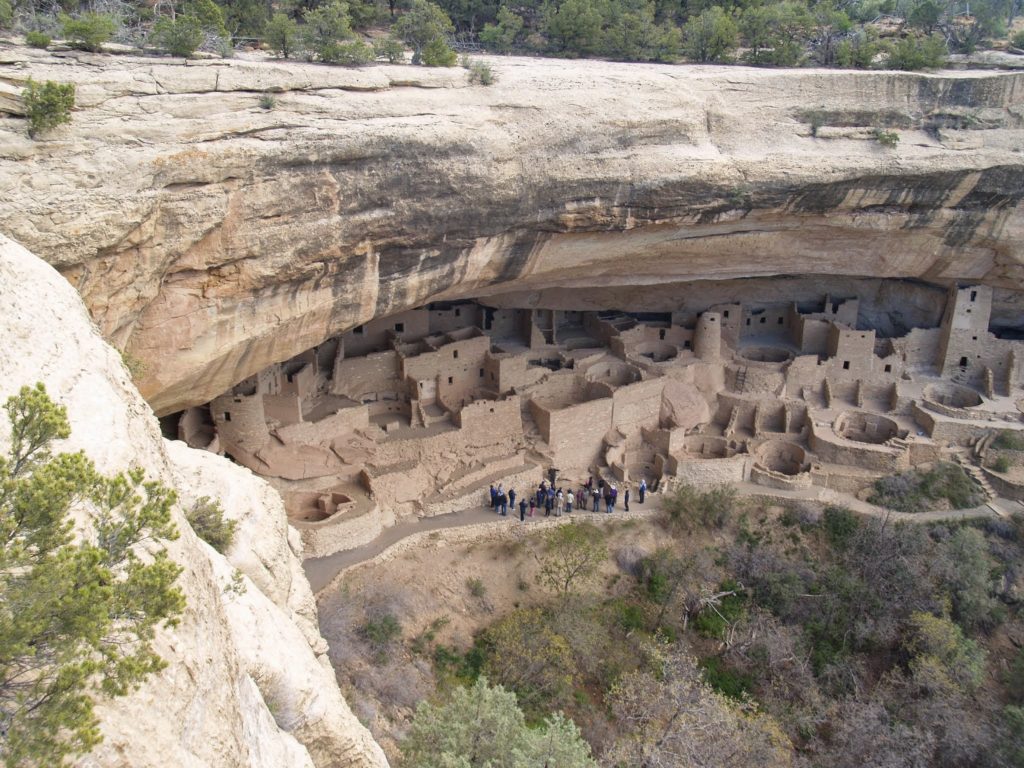
God, golf, and grace
Zechariah 10: They’ll get a fresh start, as if nothing had ever happened.
I’m not a golf historian, so I may not have the story right, but I understand that in days of old a golfer who had not had the opportunity to warm up on the driving range was allowed to declare his first shot off the tee to be a “mulligan.” That meant it was going to be a practice shot and wouldn’t count. The “mulligan” morphed into an after-the-fact point of grace, first, for the opening shot only and then to any one tee shot during the round. I’ve even played golf with some folks who took however many “mulligans” they wanted. My response has always been, “You can take as many second shots as you want as long as you don’t brag about your score!” I’m reminded that out in real life we don’t get many mulligans. Once in a while we do, for instance, when the traffic cop lets us off with a warning. However, if my poor driving has resulted in a car wreck the clock can’t be turned back and there’s no mulligan for me. God’s man Zechariah has good news for Israel. The Lord’s going to give them another chance. He’s going to gather this scattered nation from all the places where it’s landed and give it a fresh start. We serve a God who graciously gives nations and individuals second chances. When I confess my sin and failure and return to the Lord, I find that he delights in forgiving me and restoring me to his family. In golf, the mulligan is just an unofficial part of a game. With God, it’s the real deal and it happens only because of his grace.
Take Away: God is the God of Second Chances.
Devotional on Zechariah
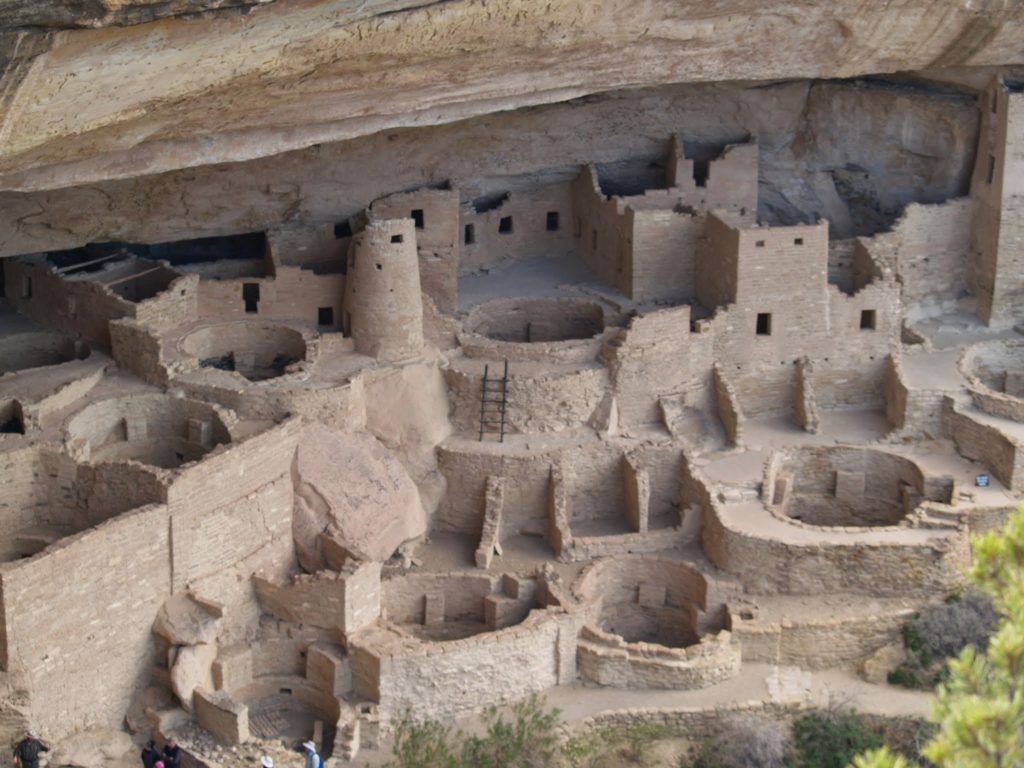
Thirty silver coins
Zechariah 11: They paid me an insulting sum, counting out thirty silver coins.
I confess I’m lost as I read this passage. Up till now, Zechariah has been the encouraging prophet, cheering the people on as they rebuild the Temple. With its negative tone, this prophecy seems out of place and sounds more like something Ezekiel or Jeremiah might have said and done. Indeed, there are no time markers in the text and it doesn’t necessarily have to chronologically follow what comes before. I don’t know whether or not this message is intended to have great meaning to Zechariah’s contemporaries. However, the thirty pieces of silver really gets our attention. This sum is the amount that’s paid for the betrayal of Jesus. Without making a serious attempt at dealing with this passage as a scholar, here’s the picture as I see it. Zechariah’s directed to take a job as the shepherd for a flock that’s marked for slaughter. Apparently, he has some authority and soon fires the other shepherds who are care nothing for the sheep. However, even though he leads the sheep with their best interests in mind, they rebel against him. Zechariah quits his job and demands his salary and is paid what he thinks of as an insulting wage of thirty silver coins — about three month’s wages. He then throws the money into the poor box. As a reader who can simply turn the pages of the Bible to the story of Jesus, this passage makes all kinds of sense. Here’s the Good Shepherd who comes to lovingly care for a people doomed for destruction. Jesus longs to gather the people of Israel to himself and to lovingly care for them. However, they rebel against him and he’s betrayed for thirty silver coins. Here we have a remarkable statement of prophecy given over 500 years before its fulfillment.
Take Away: The Lord is my Shepherd, I shall not want.
Devotional on Zechariah
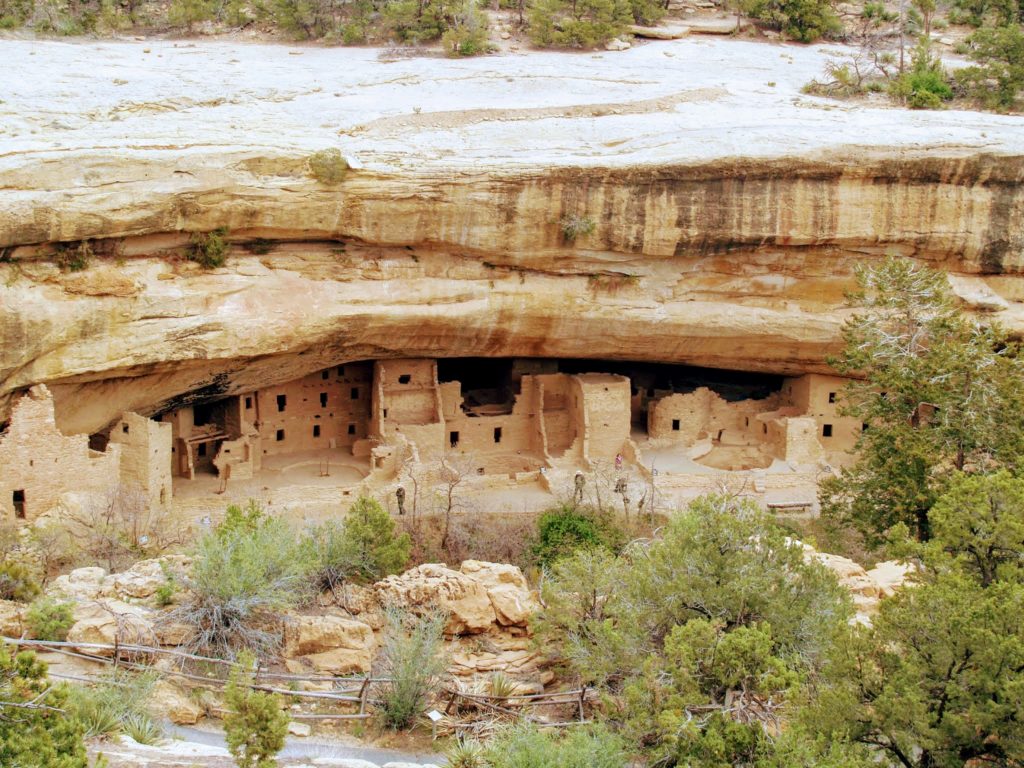
There’s a great day coming
Zechariah 12: I’ll pour a spirit of grace and prayer over them.
The prophet with a name similar to Zechariah is best known for his “Judgment Day” sermons. Zephaniah’s three chapters focus on that topic. Now Zechariah turns his prophetic gaze to “that day” (which is paraphrased in the Message “the Big Day”). Jerusalem, that city of peace, is going to be ground zero for a battle to end all battles. When it appears there’s no hope, God will take over its defense. He’ll not only destroy the attackers, but he’ll move on the hearts of his people, pouring a “spirit of grace and prayer” over them. In a moment of clarity, they’ll realize their Messiah came centuries earlier. They’ll weep as they realize that they rejected him. They’ll mourn as they remember how his life was taken, a spear thrust to the side being the final act of violence done to his body. This national act of repentance will result in God’s “washing away their sins.” As history winds down Israel will be restored as God’s chosen people. We Christians, according to the New Testament, have a place in all this. Paul says we’re like a branch from a wild olive tree that is grafted into the cultured one that has been lovingly cared for by the husbandman. Because of that, I have a stake in this promise and like Zechariah and Zephaniah I anticipate “the Big Day” promised in this passage.
Take Away: There’s a Great Day coming, a Great Day coming by and by.
Devotional on Zechariah

There is a fountain…
Zechariah 13: A fountain will be opened…for washing away their sins.
God’s prophet describes a wonderful day of hope when the last battle has been fought and the last foothold of sin has been purged from the people the Lord claims as his own. Zechariah envisions a cleansing fountain where people can come to have their sins washed away, their lives made clean. It was in 1772 that William Cowper penned a poem based on Zechariah’s words. Cowper had not enjoyed an easy life. He suffered severe depression and had at one time attempted suicide. Even after coming to Christ he struggled with depression. At the same time, he wrote the words to many songs of faith. His hymn based on the passage before us today is his best known. Cowper realizes that the fountain Zechariah describes flows, not with cleansing water, but with the blood of Christ. The fountain that makes “soiled lives clean” was opened at Calvary and the blood spilled there continues to wash away sins to this day. “There is a fountain filled with blood drawn from Immanuel’s veins. And sinners plunged beneath that flood lose all their guilty stains.”
Take Away: Thank the Lord for that cleansing fountain.
Devotional on Zechariah

The end and the beginning
Zechariah 14: What a Day that will be!
The prophet started out encouraging the returned exiles as they tackled the rebuilding of the Temple. He finishes his writing by looking to the future and reporting on the end of history. When things appear hopeless the Almighty will come to the rescue in what will be the final battle. The Lord will set foot on the historic Mount of Olives, just east of Jerusalem. Years after this prophecy Jesus prays on the Mount of Olives at the Garden of Gethsemane, and later, following his resurrection he ascends to heaven from the Mount of Olives. As he disappears into the sky angels deliver God’s message that Jesus will return in “like manner.” Like pieces of a puzzle revealed as the centuries pass, things fall into place. Zechariah says that when the Lord comes he’ll defeat the final enemy and when he sets foot on the Mount of Olives that it will split in half. His coming will bring all things to an end. At the same time it will begin all things anew. Then, as the disciples stand on that very same spot, angels tell them Jesus is coming back even as he has just left them. Oh yeah, Zechariah has it right: “what a Day that will be!”
Take Away: God’s people look forward to the glorious return of our Lord and Savior, Jesus Christ.
Devotional on Malachi

The practical book of the Old Testament
Malachi 1: God’s Word to Israel through Malachi.
The final book of our Old Testament has some interesting mysteries associated with it. Aside from his name the author is unknown to us. In fact, we may not even know his name! “Malachi” may be a title rather than a name. The word means “My Messenger” therefore the writer may be only identifying himself as a messenger of God. Another challenge is the date of the book. Malachi is unique because it isn’t associated with some coming disaster or some regional event that has everyone’s attention. Instead, this book highlights the danger that threatens when life is just rolling along at a normal pace. The scholars guess Malachi dates a little over 400 years before Christ because it appears the Temple has been rebuilt and the sacrificial system is in full operation. Since most of life is lived somewhere between wonderful, extravagant days and horrible, painful ones, Malachi is a practical book for most of us most of the time. Whoever Malachi is, he marches into their crisis-free lives and boldly proclaims that they’ve been lulled to sleep by the lack of perceived danger and because of that, are in a crisis and don’t even realize it. This little book has something to say to every day Christians just like me.
Take Away: The danger in common days is that we’ll be lulled to sleep and neglect that which really matters.
Devotional on Malachi

The theology of the tee-shirt
Malachi 1: God said, “I love you.”
I saw a shirt with this message on it: “Jesus loves you…but then again, he loves everybody.” The Lord’s first word to Israel through Malachi is “I love you.” His second word, contrary to the wisdom of the tee-shirt, is that the Lord hates Esau (speaking of the nation made up of Esau’s descendants, Edom). Both of these concepts ought to get our attention. God loves people to the point that he pays an enormous price to reconcile people back to himself. At the same time, those who oppose God’s people are hated by God. Through the years, Edom has been the enemy of Israel. When possible, Edom opposed it’s “brother-nation” openly. Otherwise, Edom cheered when Israel fell on hard times. Because they insisted on being enemies of God’s people they made themselves into enemies of God. The Lord’s love for Israel is, therefore, not a warm, fuzzy kind of “God loves everybody.” Instead, it’s love with an edge on it; love that says to Israel, “Because I love you I make demands on you.” It’s love that also says to the enemies of Israel, “If you mess with Israel you mess with me.” Today, through his Son, Jesus, the Lord invites outsiders to join his family and thereby become heirs to all the benefits of being a part of the people God loves. It’s a terrific invitation and one every person can, and should, accept. As you consider responding to that offer, it might be wise to read these opening declarations from Malachi and be reminded that there’s more to the “Jesus loves you” message than is stated on the theology of the tee-shirt.
Take Away: We’re wise to remember that this “God is love” theology is theology with an edge on it.
Devotional on Malachi

The challenge of living in the level ground days
Malachi 1: Worship of God is no longer a priority.
Anyone who’s gone through significant weight loss will tell you that the hard part of a diet isn’t the “cut-back-on-the-calories” weight loss phase. Instead, it’s the maintenance phase. At that time, the individual moves from trying to lose weight to living a healthy lifestyle that doesn’t result in regaining the weight that was lost. The problem is that there are constant temptations to give in a little here and a little there. Once one starts down that road the end result is a return to the former state of things. The people Malachi speaks to are at a cross roads. They’re secure and comfortable. The work of rebuilding the Temple was finished by their parents and grandparents. Now, it falls on them to live a spiritually healthy lifestyle as an every day people of God. Frankly, they aren’t doing a very good job of it. When they bring an animal to offer to the Lord, they’ve fallen into the habit of bringing one that they don’t want anyway. Worship, in general, is drifting to a lower and lower priority in their lives. They aren’t back at the stage of their idol-worshiping, baby-sacrificing ancestors, but, without even recognizing it, they’re gradually drifting away from God. It doesn’t take a big effort to connect the dots from this to my own life. I don’t hope a crisis will come to my life to remind me of my priorities, but, here on the level ground of life, I want to live a healthy, day-to-day spiritual lifestyle.
Take Away: Living for the Lord on the common days of life has challenges of its own.
Devotional on Malachi

How to get a better preacher for your church
Malachi 1: You say “I’m bored – this doesn’t do anything for me.”
The people of Malachi’s day have lost the edge off of their religion. Worship services are a burden rather than a blessing. For them, righteous living is more about “have to” than “want to.” What should be the most satisfying part of life has become just another burden for them to bear. Malachi tells them why it’s like this: they’ve settled for a cheap religion. When they bring an animal to the Lord they don’t pick the finest they have. Instead, they pick one that’s probably going to die anyway. Even when they brag that they’re going to make some significant offering, at the last minute they just can’t bring themselves to do it and settle for a mere token offering instead. The result, according to Malachi, is a dull, boring religion. The less they put into their relationship with God the less they get out of it. Here’s the real kicker: God isn’t satisfied with their religion either. He says, “If this is how it’s going to be just lock the Temple doors.” Apparently, the Lord isn’t into playing church. I don’t think this concept gives us preachers a license to preach dull, sloppy, poorly prepared sermons or for singers and others to sleep walk through church. However, from years of experience I can affirm that the people who get the most out of worship services are the ones who put the most into them. Why not give it a try? Get up early enough to pray for the services and for yourself, arrive ahead of time, focus on the Lord, and give 100% to worship. Who knows? You might have a better preacher at your church than you think you do!
Take Away: The people who get the most out of worship services are the ones who put the most into them.
Devotional on Malachi

Who gets to define marriage?
Malachi 2: God, not you, made marriage.
During the exile their ancestors clung together, maintaining their national identity even in a diverse society. Now that Israel’s been reestablished in it’s own land the people have let their guard down and are breaking God’s command that they be a people set apart as his very own. They’ve married outside their own nation. They shouldn’t be surprised that when they blatantly disobey God that he withdraws his blessings from them. Beyond that, even those who haven’t mixed with other nations are treating marriage differently than God intends, making it relatively easy to toss a marriage aside if it suits them. Through his prophet the Lord declares that he’s the one who designed marriage and he hasn’t given them the authority to redefine what it’s all about. He tells them that he “made marriage” and that “his Spirit inhabits even the smallest details of marriage.” Then he adds, “I hate divorce.” I think the Lord’s speaking to the whole institution here rather than to individual situations. He isn’t denying the possibility of divorce in a specific situation so much as he’s stating his opposition to a culture that takes marriage vows lightly. Also, it goes without saying that the Lord insists that he’s the one who defined marriage and, as this passage says, an outcome of marriage is to be “children.” While there are circumstances in which children can’t be the product of a marriage at least the potential is to be there. That settles it. Marriage is between man and woman and no majority of voters or federal court or anyone else can define it otherwise. Don’t ever doubt it: God takes this kind of stuff very seriously.
Take Away: If we want to understand what marriage is all about we need to start with the Creator of it.
Devotional on Malachi

Malachi 3: Return to me so I can return to you.
If my relationship with God is strained or even broken today there’s a remedy. When, like the Prodigal Son, I come to my senses, rise, and return to my Father I find that he’s been waiting for me all along. What a relief it is to know that the Lord doesn’t hold a grudge against me. Rather, he patiently reaches out to me, calling me to himself. When Malachi states this spiritual fact of life to his congregation, someone asks for more information on this “returning” business. Exactly how do they do that? The prophet has an answer ready. A sure sign that a person’s returning to God is honest repentance on their part. In Jesus’ parable, the Prodigal is honest with himself and with his father. He’s messed up and he wants to make things right. He knows he doesn’t deserve re-admittance into his father’s household as a son, so he’ll take what he can get. That, my friend, is honesty. In this passage, Malachi points out that they’ve been dishonest with God in the stewardship of their possessions. He tells them that, for them, honesty with God means admitting their failure in this matter. This business of bringing sick and blind animals for sacrifice has to be stopped, confessed, and made right. Their practice of shortchanging God with their tithes has to end and be corrected. That’s what repentance is all about: confession and change. Through his prophet, the Lord says, “If you’ll return to me in repentance, I’ll return to you and bless your life in wonderful ways.” When a nation as a whole makes things right with God, Malachi says, it’ll be voted “Happiest Nation” and be known as a “country of grace.” That’s a good place to live.
Take Away: A sure sign that a person’s returning to God is honest repentance on their part.
Devotional on Malachi

On the brink and not realizing it
Malachi 3: It doesn’t pay to serve God. What do we ever get out of it?
The message of Malachi is for people who are living in the broad middle, somewhere between the best and the worst days of life. They’re comfortable and secure, just going about the business of living. However, there’s hidden danger in that. When I’m living in the middle I’m tempted to take things for granted. Blessings that would have thrilled those who went before me are lost to me. God feels distant and that makes it easier for me to take spiritual shortcuts which make him feel even more distant. If I’m not careful, one day I look around and God is nowhere to be found. I think to myself, “Do I really need the hassle of religion? I don’t think it’s worth the effort I put into it. People who live as non-religious individualists seem to get along okay. Maybe that’s for me.” That’s where Malachi’s congregation is. Without a sense of desperation for God they’ve drifted away from him. Now, they’re on the verge of stepping off the cliff into the canyon of unbelief. The Lord responds that he’s well aware of what’s going on and that the day’s coming when they’ll be abruptly moved from the broad middle to the hard side of life. With all else ripped from their grasp, their faith will be all there is left to hold on to. There’s unseen danger for those of us living in the broad middle of life.
Take Away: We have to pay attention to spiritual things or they slip from our grasp.
Devotional on Malachi

The curtain falls, but Act II is about to begin
Malachi 4: Remember and keep the revelation I gave through my servant Moses.
Did Malachi understand that these words were to become, for Christians across the ages, the closing words of the Old Testament? It’s highly unlikely. However, I believe God, the Holy Spirit knew it. The last two paragraphs of Malachi are an excellent ending for the Old Testament. For those of that day, still living under the Law, one of the last words is “remember.” They’re to keep the “rules and procedures for right living” given them by Moses. If they do that they’ll have done what the Lord requires of them. However, there’s another last word. It’s, “also look ahead.” The Lord isn’t finished working out redemption for them and all that has happened thus far has prepared the way for the really big deal that’s yet to come. As the curtain’s falling on this, the first act we’re told that the next act is going to be both interesting and surprising. They’ll know it’s starting when Elijah shows up to usher it in. For the people of Israel, that’s a long 400 years distant in the future. As for me, all I have to do is turn the page to see what has, up to now, been the black and white picture of God’s salvation plan displayed in living color.
Take Away: Even to this day we are wise to obediently remember what the Lord has told us while at the same time look forward to what he has promised us.
Reflections
In 2005 I was thinking about ways to enhance time I spent in God’s Word. Through the years I had read the Bible in various translations, used different devotional guides, etc. I felt that rather than reading several pages each day that I needed to slow down and reflect more on what I was reading.
Writing has always been a way for me to think through things. As I prepare sermons I don’t write a manuscript, but I do a lot of writing which helps me organize my thoughts. I decided I would read my Bible each day until something caught my attention. At that point I would stop reading and write my thoughts about it.
At first, these were strictly personal thoughts and I had no intention of making them public. However, I ultimately decided that by posting them online I would not only be sharing my thoughts but I would have a thumb in my back to keep writing. I ended up posting the devotionals to not only my blog but to Facebook and Twitter as well.
A few years later, I self published my devotionals, ultimately in four volumes. I basically gave them away, setting the prices at the minimum allowed. Several have bought the books, but many more read them daily online.
When I finally came to the end of Revelation I decided to go back to Genesis, repeating the devotionals day by day, sometimes editing them for clarity or just to fix a typo. I think all my devotionals have now been published on a daily basis four times.
On the online version of my devotionals I’ve added a photo, taken during our travels, to each day’s devotional. I think I’ll republish the daily devotionals again, starting in Genesis, because people are just finding them.
Thanks to all who have read, made occasional comments, and clicked on Facebook “like.” Your words of encouragement are a real blessing to me.
Devotional on Genesis

The curtain rises and there stands God
Genesis 1: First this: God created the Heavens and Earth.
Genesis is the book of beginnings. Here I’m told how the world began: light and sky and life. In Genesis I see the first sunrise and meet the first man and woman. Of course, I see the first sin and the first death here, but I also see the first act of redemption, hear the first prayers prayed, and encounter the first man known for his faith and friendship with God. The big omission of a “first” happens in chapter one, verse one. As the curtain lifts I find One Being already standing at center stage. There’s no prelude and no introduction. I start reading and even though there’s nothing to be seen, there He is. It’s staggering isn’t it! The first thing that ever happens is when God steps out into nothingness and begins doing something. Right off I know he’s the Creator and right off I know there’s no hope of my ever fully comprehending him.
Take away: I can know this eternal, Creating Being.
Devotional on Genesis

The Who, How, and What of Creation
Genesis 1: It was so good, so very good!
The account of Creation is a lot more about “who” than it is about “how.” When the story begins its God who begins it. He speaks and things happen. There’s no doubt that he’s in charge and the account of Creation is all about what the Creator does. On the other hand, there’s no more effort made to tell me “how” it happened than there is to explain God, himself. If I want to know the composition of light, I’ll have to look elsewhere because the Bible doesn’t tell me. If this is a poetic description of a “big bang” it’s okay with me so long as I can believe that God is the one who creates and directs the energy of it in the first place. So, as I read these opening pages of the Bible, I immediately encounter the “Who” of it all and I immediately find that this Creator isn’t all that interested in satisfying my curiosity of “how.” However, there is one thing he wants me to know: that’s “what” he has done. He declares to me that it’s “very good.” I know “Who” did it but I don’t know “how” he did it. Still, I know that “what” he did is “so good!” As I read this account I’d better concentrate more on what I’m supposed to know and less on what the Lord doesn’t bother to tell me about it.
Take away: I need to focus on the Creator and not get too wound up in how he created.
